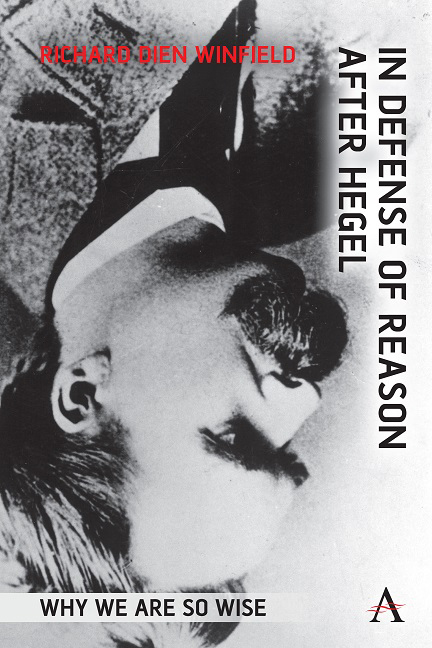Book contents
- Frontmatter
- Contents
- Acknowledgments
- Introduction
- 1 Why We Are So Wise: Hegelian Reflections on whether Reason Can Be Enhanced
- 2 Self-Determination in Logic and Reality
- 3 Hegel’s Overcoming of the Overcoming of Metaphysics
- 4 On Contradiction: Hegel versus Aristotle, Sextus Empiricus, and Kant
- 5 Overcoming Actuality: How Hegel Frees Us from the Prison of Modality
- 6 Time and Reason
- 7 Hegel and the Problem of Consciousness
- 8 Hegel and the Origin of Language
- 9 The Logic of Right
- 10 A Dream Deferred: From the US Constitution to the Universal Declaration of Human Rights
- 11 World Spirit on the Campaign Trail in Georgia: Can the Philosophy of Right Be a Guide to Social Reform?
- 12 The Classical Nude and the Limits of Sculpture
- Bibliography
- Index
10 - A Dream Deferred: From the US Constitution to the Universal Declaration of Human Rights
Published online by Cambridge University Press: 26 May 2022
- Frontmatter
- Contents
- Acknowledgments
- Introduction
- 1 Why We Are So Wise: Hegelian Reflections on whether Reason Can Be Enhanced
- 2 Self-Determination in Logic and Reality
- 3 Hegel’s Overcoming of the Overcoming of Metaphysics
- 4 On Contradiction: Hegel versus Aristotle, Sextus Empiricus, and Kant
- 5 Overcoming Actuality: How Hegel Frees Us from the Prison of Modality
- 6 Time and Reason
- 7 Hegel and the Problem of Consciousness
- 8 Hegel and the Origin of Language
- 9 The Logic of Right
- 10 A Dream Deferred: From the US Constitution to the Universal Declaration of Human Rights
- 11 World Spirit on the Campaign Trail in Georgia: Can the Philosophy of Right Be a Guide to Social Reform?
- 12 The Classical Nude and the Limits of Sculpture
- Bibliography
- Index
Summary
Rights and the Constitution
A constitution should authoritatively state the rights whose recognition, exercise, and enforcement build the secure reality of the political, social, household, moral, and property freedoms in which valid conduct consists. These rights are properly inalienable fixtures of a just community and they should be constitutionally protected from violation and repeal.
The crowning institution of right is the sovereign self-governing state, whose own freedom cannot be maintained if citizens are subordinate to another power beyond their political control. Nonetheless, the supreme autonomy of self-government does not make problematic upholding the nonpolitical rights of property owners, moral subjects, family members, and participants in a duly civil society. This is because individuals cannot wield their equal political opportunity as self-governing citizens unless their other rights are respected.
First and foremost, the property right of all individuals must be upheld for the simple reason that we cannot exercise any further rights if the inalienable ownership of our own body is not respected. If, instead, self-ownership is not universally recognized, at least some individuals are subject to appropriation by some master, to whose will everything they do is attributable. Nothing they undertake will count as their own deed and they will lack any independent freedom that others need respect.
Similarly, we cannot enjoy any conscientious participation in public life unless we recognize one another to be morally responsible. Only then will we be in a position to hold one another accountable for what we do on purpose and for those consequences we intended. Those deprived of recognition as moral agents will forfeit their dignity, without which their privileged counterparts are at liberty to treat them as disposable means serving the purposes of others. Without recognized moral agency, one loses any chance to participate freely as member of a family, a civil society, or a self-governing state.
So too, if spouses cannot exercise equal rights to codetermine their joint household property and welfare, those who are dominated by their partner will be unable to participate equally independently in society and politics. Those who lord over their spouse in the family will have a privileged say on the allotment of household duties, as well as direct by whom and how the family interest will be represented outside the home.
- Type
- Chapter
- Information
- In Defense of Reason after HegelWhy We Are So Wise, pp. 147 - 180Publisher: Anthem PressPrint publication year: 2022

